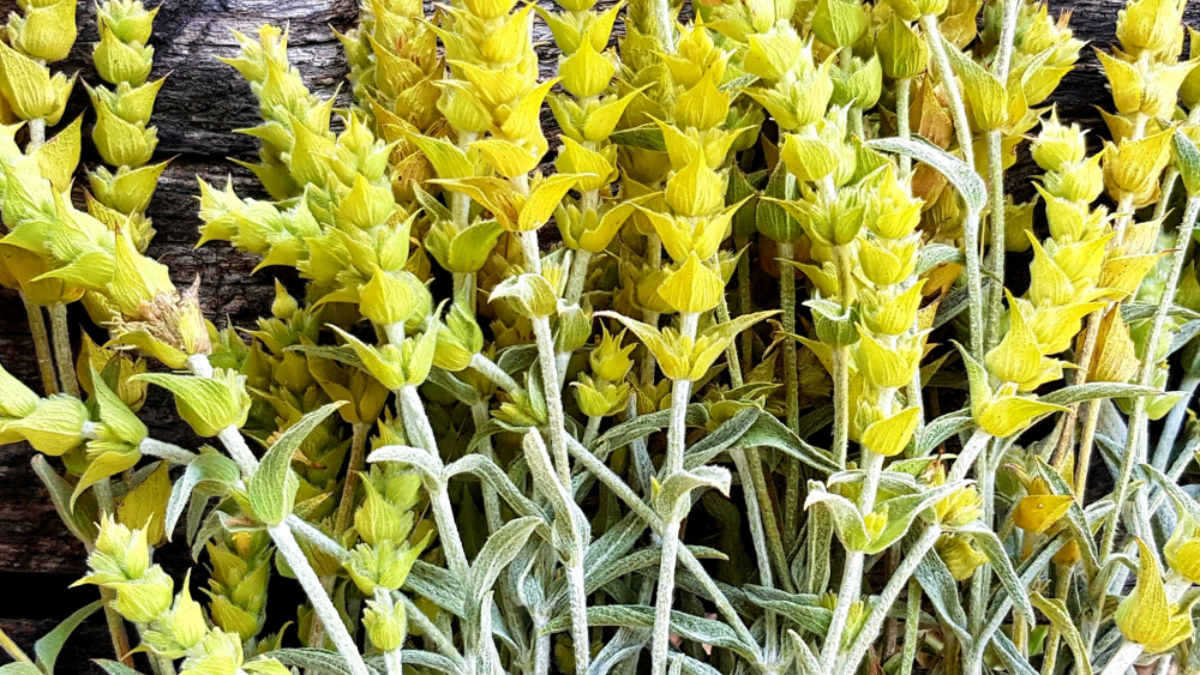Mountain tea is a traditional Greek infusion made from the sideritis plant (Sideritis L.).
This particular herb thrives in the mountainous regions of Mediterranean countries, including Greece.
Greece hosts over 17 different species of the sideritis plant that grow in specific areas of the country. Some of the best-known species include Olympus tea (Sideritis scardica), Parnassus tea (Sideritis raeseri) and Cretan tea (Sideritis syriaca).
In Greece, mountain tea is often collected using traditional methods, ensuring that its high quality and nutrients are preserved. Many cultivations are organic and do not use fertilizers or pesticides, maintaining the purity of the product.
Mountain tea has zero calories, as it does not contain significant amounts of carbohydrates, proteins or fat.
However, it contains important compounds such as terpenes, flavonoids, iridoids, coumarins, lignans, sterols and various essential oils, to which it owes its health benefits.
For example, flavonoids are one of the largest classes of phenolic compounds, known for their anti-inflammatory and antioxidant properties, which are associated with multiple health benefits.
Mountain tea contains a wealth of nutrients with significant health benefits.[1]
Its therapeutic properties have been known for many years. In traditional medicine, mountain tea is used to treat many conditions, including flu, the common cold and gastrointestinal disorders (e.g. ulcers and indigestion).
Although studies are limited, mountain tea has promising therapeutic potential for countering neurodegenerative diseases such as Alzheimer’s. Its phenolic and other bioactive compounds appear to be capable of improving cognitive function, but further studies are required to confirm mechanisms of action and its efficacy in humans.
There is also evidence that mountain tea contributes to the reduction of ‘bad’ cholesterol (LDL-C), improving the lipid profile and possibly reducing the risk of cardiovascular diseases.[2]
Finally, several studies show that the essential oils from the various types of sideritis have significant antimicrobial activity against common pathogenic microorganisms, offering protection against infections.
In conclusion, mountain tea is a precious Greek natural beverage with multiple health benefits.
BIBLIOGRAPHY
[1] Żyżelewicz D, Kulbat-Warycha K, Oracz J, Żyżelewicz K. Polyphenols and other bioactive compounds of Sideritis plants and their potential biological activity. Molecules. 2020 18:25(16):3763. doi: 10.3390/molecules25163763.
[2] Kassi E, Dimas C, Dalamaga M, Panagiotou A, Papoutsi Z, Spilioti E, Moutsatsou P. Sideritis euboea extract lowers total cholesterol but not LDL cholesterol in humans: A randomized controlled trial. Clin. Lipidol. 2013 8:627–634. doi: 10.2217/clp.13.64.










